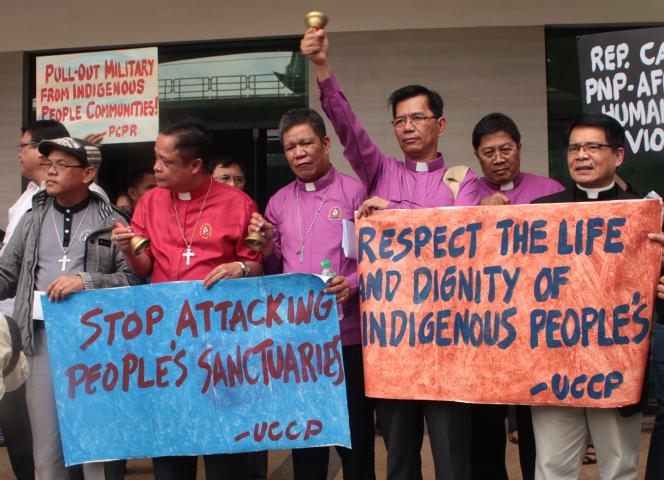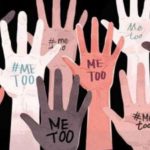Sexual Violence as a peacetime-wartime continuum: Part 5; Sexual violence and Indigenous women in Conflict
Women and children are the worst affected by a conflict, undoubtedly. But among them is a segment of women and children that are still more affected in comparison with their counterparts outside of the division. And they are the women and children in indigenous communities.
Of course, sexual violence is sexual violence, and no matter who the target is, the crime is abominable and unacceptable. Of course, conflict is conflict, and no matter what the two sides to it comprise, the erosion of the sanctity attached to humanity is still unacceptable. But the level and magnitude take on a whole new shade when the subjects of planned campaigns of sexual violence are women in indigenous communities.

In the instances where indigenous communities have been targeted in war, the underlying motive behind the attacks is genocide: to wipe out the community altogether, to “ethnically cleanse” a community of people and to wipe out their existence. In the Second World War, Gypsy communities along with the Jews were subjected to the Holocaust, and sexual violence was indeed rampant in those days. In the 1994 conflict between the Hutus and Tutsis in Rwanda, sexual violence against the Tutsi women went into constituting a grand part of the genocide. Over the three decades of the Guatemalan Civil War from 1960 to 1996, the ethnic Mayan indigenous people suffered many human rights violations, and sexual violence was part of an organized campaign of genocide.
Undoubtedly, whole communities do suffer the consequences of armed conflict, but it is the women and girls that are particularly affected because of their status in society and their gender. This is especially so in indigenous communities, where the sanctity of their community living comes from the equality of the genders. Consequently, when there is a systematic policy of genocide targeting an indigenous community, it almost always includes a campaign of sexual violence since there is a “need” to upset the equality, and the balance, to erode the social structures in the community.
Under the Genocide Convention, Genocide is defined as conduct that is carried out with an intent to destroy in whole or in part, a national or an ethnic group, through a) Killing members of the group; b) Causing serious bodily or mental harm to members of the group; c) Deliberately inflicting on the group conditions of life calculated to bring about its physical destruction in whole or in part; d) Imposing measures intended to prevent births within the group; and e) Forcibly transferring children of the group to another group.
Easily, any campaign of sexual violence falls into the above definition in one way or the other. A cursory glance at any of these conflicts that involved systematic campaigns of genocide will show you that the infliction of sexual violence had impacts not only on the individual woman but also on the community in entirety. In that sense, sexual violence in the war in pursuit of genocide is not only a war tactic but is also chillingly premeditated, widespread and systematic and an overall uniform practice. None of the incidents of rape and sexual violence are or were isolated, but are and were rather acts committed under the sanction of superiors in charge of each of the troops. These acts were legitimized, authorized and sanctioned, and carried out with a grotesque aspiration of erasing the indigenous populations, and what better way than targeting the women? Sexual violence breaks the stability of the society by throwing the balance of equality that indigenous communities revere and practice. Coupled with that, the infliction of injuries that sometimes culminate in death, the use of sexual violence also keeps in check the propensity to reproduce, in the process stymieing the existence and growth of the community itself.
In the words of one of the Maya Ixil women who survived the ordeal in Guatemala, who heard a clear and strong voice of a soldier saying: “Rios Montt told us to finish off all of this Ixil trash since they collaborate with the guerrilla”.
Read Part 1 HERE , Part 2 HERE , Part 3 HERE and Part 4 HERE
About the Author:
 Kirthi Jayakumar is an activist, artist, entrepreneur, and writer from Chennai, India. She founded and runs the Red Elephant Foundation, a civilian peacebuilding initiative that works for gender equality through storytelling, advocacy, and digital interventions. She also founded and runs fynePRINT, a feminist e-publishing imprint. She is a member of the Youth Working Group for Gender Equality under the UNIANYD.
Kirthi Jayakumar is an activist, artist, entrepreneur, and writer from Chennai, India. She founded and runs the Red Elephant Foundation, a civilian peacebuilding initiative that works for gender equality through storytelling, advocacy, and digital interventions. She also founded and runs fynePRINT, a feminist e-publishing imprint. She is a member of the Youth Working Group for Gender Equality under the UNIANYD.
Kirthi is an author and released her debut novel in 2017, titled The Doodler of Dimashq. Her second book, The Dove’s Lament, made it to the final shortlist for the Muse India Young Writers’ Literary Award.
Kirthi coded an app for survivors of gender-based violence called Saahas, which works as a web and mobile app. She taught herself to code and created a web app, a mobile app, and a Facebook ChatBot to support survivors of gender-based violence across 196 countries, and to assist bystander intervention.
In 2016, Kirthi was invited to Michelle Obama’s United State of Women Summit at the White House in Washington DC, as a nominated changemaker. In 2017, she was one of the youth activists invited to attend President Obama’s Town Hall at New Delhi.
Kirthi has spoken at TEDx Chennai, addressing Peace Education as a means to end Bullying. She has also spoken at FICCI FLO, as one of the youngest speakers to address the members. She was also a speaker at the Economic Times Women’s Summit 2018. Kirthi has also had the distinction of addressing the UNV Partnerships Forum on her work as an epoch-making online volunteer with the United Nations.
Kirthi is the recipient of the US Presidential Services Medal (2012) for her services as a volunteer to Delta Women NGO, from President Barack Obama. She is the two-time recipient of the UN Online Volunteer of the Year Award (2012, 2013). She received the 2016 Orange Flower Award from Women’s Web, the 2016 World Pulse Impact Leader Award and the 2017 Empowerment Leader Award from the Dais Foundation. Her work has been published in The Guardian and the TIME Magazine. She was recognized by EuropeAid on the “200 Women in the World of Development Wall of Fame in 2016.” She received the Digital Women Award for Social Impact in 2017, from SheThePeople, the Person of the Year (Social Entrepreneur) 2017 from The Brew Magazine. Kirthi is a recipient of the Yuva Samman from MOP Vaishnav College, in January 2018. The Red Elephant Foundation received the FICCI FLO Outstanding NGO of the Year Award 2018, and the UN Online Volunteering Award 2017. Kirthi was also among the six women featured on Facebook India on International Women’s Day in 2018.




Leave a Reply